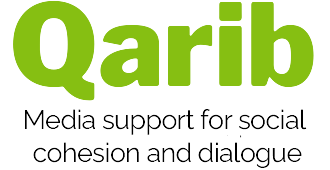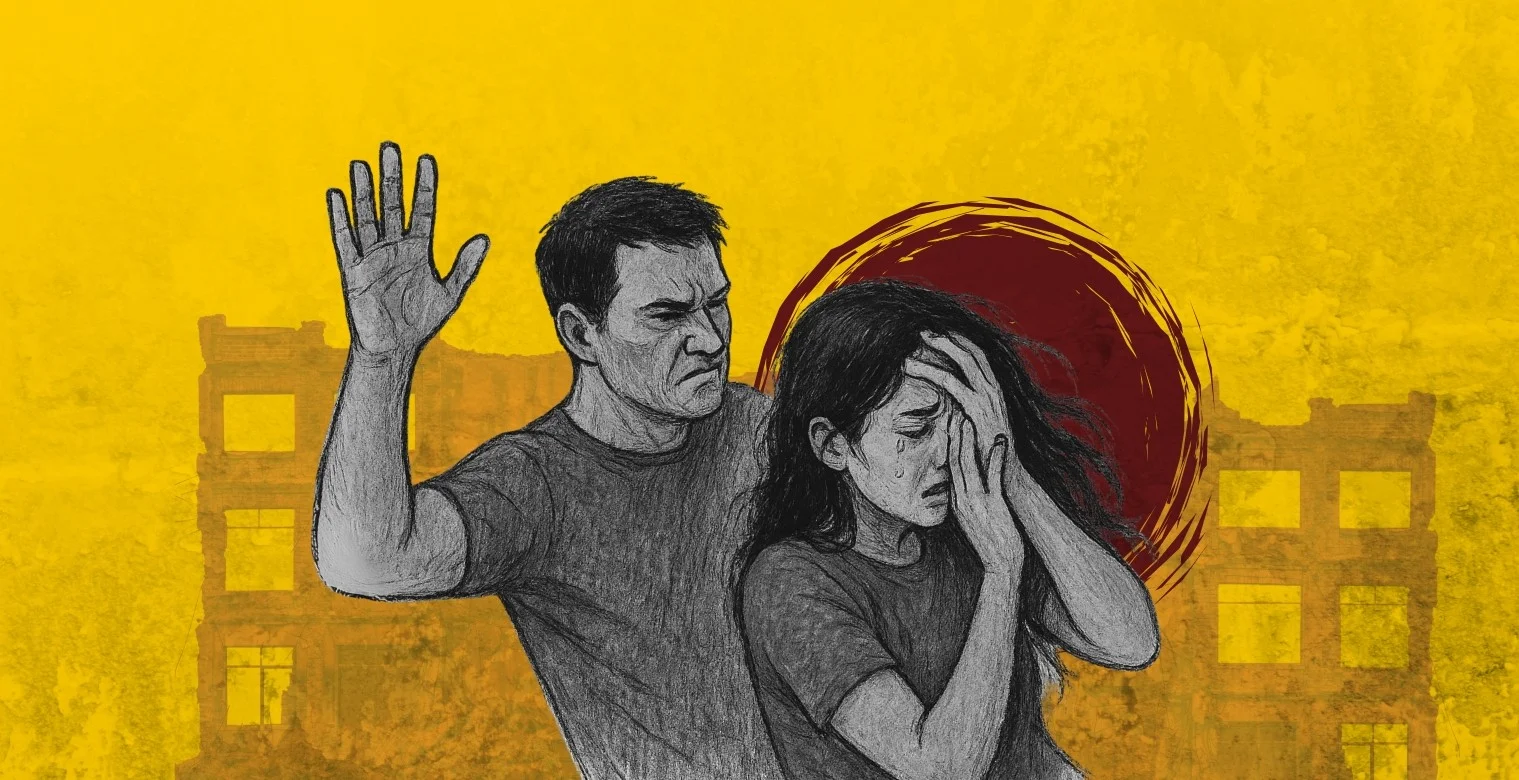“Last Story”: On False Hope in Gaza
“Last Story”: On False Hope in Gaza
Another month passes amid the continuation of successive developments in the region that our partners have closely followed, whether it was the tragic situation in Gaza or the political tension in Lebanon in light of U.S. pressure to implement Resolution 1701 and hand over Hezbollah’s weapons, or the follow-ups on daily issues that matter to people, in addition to multiple issues in Iraq including minority affairs and their concerns, as well as issues of women and youth in all Iraqi provinces. With continued coverage of matters that concern people and youth in Jordan.
Palestine
Amid the daily pictures and scenes reaching us from Gaza about hunger and the fall of more victims, our partners at the site “Last Story” have followed these issues and others no less important, such as the increase in violence against women amid hunger and war…
https://www.laststory.net/post/2328/العنف-ضدّ-النساء-يتصاعد-وسط-الجوع-والنزوح
And the Editor-in-Chief of the site, Fadi Husseinin, wrote about what the people of Gaza are living through, not only with regard to hunger but also the impact of the news of negotiations and their failure on people who have reached their last breath.
The rumbling of the stomach rises in the face of the hunger happening in Gaza, only to be stopped by a passing news item shared through news groups on Telegram: “Positive results in the truce talks.” We realize the absurdity of such news, often attributed to “informed sources” and not leading to real results. But they are good in any case, they calm the stomach’s rumble a little, as if making us feel somewhat full.
Here, one might ask: what is the connection between the glut of news such as: “positive talks, progress in negotiations, reassuring steps, nearing an agreement,” and the transformation of stomach rumbling into a feeling of satiety?
The truth is that the matter is closely related, not only psychologically but also in other ways. From a health perspective, you would feel reassured if you needed medicine, since the possibility of it being available with the implementation of the truce is realistic, and this brings hope for healing.
And if you wish, from an economic perspective there is also a link: if the truce is implemented, your running after flour — the kilo of which now costs 30 USD — might stop, and with it the draining of your empty pockets. Or at least you would get humanitarian aid that improves your conditions and those of your family.
That is why no two people talk about politics without the truce being their third. From here we can understand how news of a truce created a clear psychological disturbance among a wide segment of people, as it controls their moods from hour to hour: they smile then cry, they sleep on promising news, then wake up to new maps of displacement, or news like “negotiations collapsed, back to square one.”
Here, people postpone their hunger, sometimes refraining from buying flour or vegetables — at astronomical prices — on the pretext that the circulating news is promising of aid convoys entering on a certain day. The aid does not come, and the hungry grow hungrier, and the traders more greedy, hiding goods from the market and leaving people searching for another piece of news to feed them hope, so their stomachs stop rumbling and they feel temporarily full.
And in the Palestinian file also but from Lebanon, our partners followed the Palestinian weapons file after the postponement of handing over the weapons as Lebanon had officially previously announced. And Beirut Today implemented a field investigation from Nahr al-Bared camp in northern Lebanon on the measures taken by security forces around this camp which restrict movement somewhat.
https://beirut-today.com/2025/07/24/تضييق-على-مخيم-البدواوي-2/
Iraq
Our partners continue to work amid major challenges. We will highlight some of them in what our colleague Ahmed Shankali from the site Ezidi 24 wrote, especially regarding the challenges facing minority journalism in disputed geography.
Minorities such as Yazidis, Christians, Kakais, Shabak, and Turkmen live in tense conditions, paying the price of this chronic conflict.
Journalists working in minority areas suffer major field difficulties. Moving between villages requires passing through several checkpoints, and the journalist may be subjected to arrest, beating, or administrative harassment at any moment. The main reason for this is the geographic and political conflict.
Covering an event in an area under the Iraqi government requires obtaining approvals from multiple authorities: police, army, and factions of the Popular Mobilization Forces. In the Kurdistan region, a journalist is not allowed to work without approval from the Asayish (security), police, and sometimes even Peshmerga forces.
Discrimination in the treatment of journalists in these areas may be political or ethnic in nature, amid the division between Arabs and Kurds, or between the central government and the region. For example, media coverage in the Sinjar district seems relatively easier, but reaching the district itself requires multiple approvals. Meanwhile, the Shabak, Kakai, and Christian areas in the Nineveh Plain are among the hardest to cover, due to the dominance of the Popular Mobilization Forces there, to the point that some citizens and local officials refuse to give any statements out of fear for their lives.
As for minority areas within the Kurdistan region, although access is relatively easier, media coverage is often limited to showcasing “achievements,” and journalists are not allowed to address any events or issues not serving the authorities’ interests.
The situation is further complicated by the overlapping geography. Crossing an Iraqi or Kurdish checkpoint feels like crossing an international border, as the laws of one area do not apply to the other. A press ID, experience, religion, or even the journalist’s media outlet do not exempt them from obstacles. At any moment, they may be arrested, their equipment confiscated, their camera broken, or forced to delete their material.
Any journalistic report displeasing to one party in the conflict may lead to the closure of the media institution or its ban from coverage in those areas, or even prosecution of the journalist by the other party. Dozens of journalists working in minority areas have been placed on “wanted” lists either by the regional government or the federal government.
“Silet Wasl”
A new partner has joined the Qarib program’s partners from Lebanon, a youth platform called “Silet Wasl.” This platform began in the southern city of Tyre and covered the recent Israeli war from the area. About the reason for launching the platform in 2003, the team said it came “as a result of a pressing need for a responsible and comprehensive media voice in southern Lebanon, where professional journalism is often absent or subjected to political interests.”
The supervisors of the platform say they aim to “empower a new generation of journalists, especially students and women, through training, providing resources, and producing rights-based, high-quality content across written, visual, and audio media.” The platform focuses on issues of corruption, environmental degradation, gender, and freedom of opinion and expression. And like most platforms, one of the biggest challenges it faces is “dealing with the unstable security and political climate in Lebanon, especially in the south, while maintaining editorial and financial independence and gaining the trust of readers and sources alike.”
Cooperation of Qarib partners in production and publishing
The platform Shariket Walaken published an investigation prepared by Qarib’s partner Wish Box about the impact of women’s participation in economic life in Jordan.
https://www.sharikawalaken.media/2025/07/29/الأردن-منافع-مشاركة-النساء-اقتصاديًا/
Iraq
The platform Sawa covered the story of an environmental activist who organizes volunteer campaigns to plant thousands of plants in order to eliminate desertification, propagate extinct plants, and work to return them to Iraq’s environment.
https://www.facebook.com/share/v/1ApoQEj2n5/
See you next month with more news about the program and about you.

